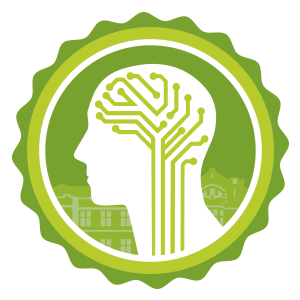2024 Schedule - Coming Soon!
The GMCTL Fortnight event is two weeks of exciting ideas, tips, and resources around teaching your courses and support for all USask intructors prior to the term start.
Fortnight sessions will vary in style, length, and scope - there is something for everyone! See the accordions below for just some of the examples of our past sessions. The new 2024 schedule will be posted mid-summer.
Past session examples
This is an information session for those who are curious about the Certificate in University Teaching and Learning (CUTL). The Certificate in University Teaching and Learning is a competency-based program for USask faculty, sessionals and lab instructors to document and develop their skills in university teaching. Once you complete the program, you will have a portfolio that details evidence of your skills, achievements and reflections on your growth. Click for more info on the CUTL certificate.
Through this session, participants will learn about how to shape their course syllabi to not only include the elements required under the Academic Courses Policy, but also to set the tone for the course and provide students with a road map of their learning in the course, as well as who you as the instructor are as a person and educator.
Designed exclusively for instructors seeking to enhance their instructional design skills. Gain essential knowledge and practical strategies to create well-structured and engaging lessons. From setting clear learning objectives to crafting effective assessments, this workshop equips you with the tools to maximize student learning outcomes. Elevate your teaching prowess and create impactful lessons that inspire and engage learners.
Certificate in University Teaching and Learning (CUTL) Indicators:
- 2.1.2 - I create outcomes that are active, and have all three parts (active vereb, content, context);
- 2.1.3 - I select active & engaging instructional strategies aligned to an outcome and intended assessment;
- 3.1.1 - I select assessment strategies, both formative and summative, aligned to an outcome
Join this session for practical inclusivity strategies, easily implemented into your course, based on Universal Design for Learning Principles.
Certificate in University Teaching and Learning (CUTL) Indicators:
- 2.2.2 - I design to engage diverse learners
In this 1-hour workshop, you’ll learn simple ways to increase student ownership of learning using assessment and instructional approach.
Certificate in University Teaching and Learning (CUTL) Indicators:
- 2.2.2 - I design to engage diverse learners;
- 3.2.1 - I give students multiple opportunities to learn though practice and feedback, so they have sufficient time and support to reflect and improve (assessment for learning)
This session will support faculty and staff with begining to examine personal disposition within the context of teaching and learning. Educators can use the Reciprocity of the Relationship model to support the Indigenous student experience. The model describes the critical, fundamental understanding of the educator mindset needed for the respectful approach to improving educator-learner relationship, engagement, and in the end, achievement.
- Course outcomes that focus on competencies
- Instructional design that centres students’ agency to reflect, share, act
- Progression in practice & feedback
- Assessment of students’ competencies
Certificate in University Teaching and Learning (CUTL) Indicators:
- 2.1.3 - I select active & engaging instructional strategies aligned to an outcome and intended assessment;
- 3.2.3 - I design assessment tasks that require students to apply disciplinary learning under authentic, or close to authentic as possible, circumstances.
Students get mixed messages about what kinds of assistance and collaboration are appropriate for assignments. Join this session for reminders about what student may not know or may not understand and how you can make your expectations crystal clear.
Finding oneself on the journey to reconciliation, many people come to a moment when they want to find a way to use a Land Acknowledgement with more meaning and increased integrity. These beautifully crafted statements said at the beginning of an event, meeting or special occasion are meant to help invoke the spirit of the land and sky, and to create a space for mutual respect and understanding. This session will introduce participants to the process of understanding connections to the land and protocols fopr acknowledging the original inhabitants of this land.
Certificate in University Teaching and Learning (CUTL) Indicators:
- 1.2.2 - I value perspectives and worldviews different than my own
Come learn how to use case studies during lecture time effectively. You will be able to find cases through online repositories and adapt them for your classroom needs.
Certificate in University Teaching and Learning (CUTL) Indicators:
- 2.1.3 - I select active & engaging instructional strategies aligned to an outcome and intended assessment;
- 2.3.1 - I use formative assessment to inform and adapt course/lesson design
Bring an assessment that you need to revise or reconfigure for the ChatGPT context. We will work on ChatGPT "resistant" and ChatGPT "inclusive" approaches. Whilte doing so, you will consider related teaching needs where:students know how to avoid harm, students value human capabilities, student use tools ethically, and students prepare for and adapt to new and disruptive technologies in the future.
Certificate in University Teaching and Learning (CUTL) Indicators:
- 1.1.2 - I model and explain academic integrity;
- 3.1.1 - I select assessment strategies, both formative and summative, aligned to an outcome
Information
If you have questions about the Fall Fortnight event, you can email the Gwenna Moss Centre for Teaching and Learning.
Connect with us on LinkedIn!
Stay ahead of the curve in teaching and learning with GMCTL! Whether you're passionate about professional development or simply enjoy staying informed, our page is your go-to source for the latest trends and insights. Connect with us today to join a vibrant community dedicated to elevating and enhancing education. Find us at: Gwenna Moss Centre for Teaching and Learning.
